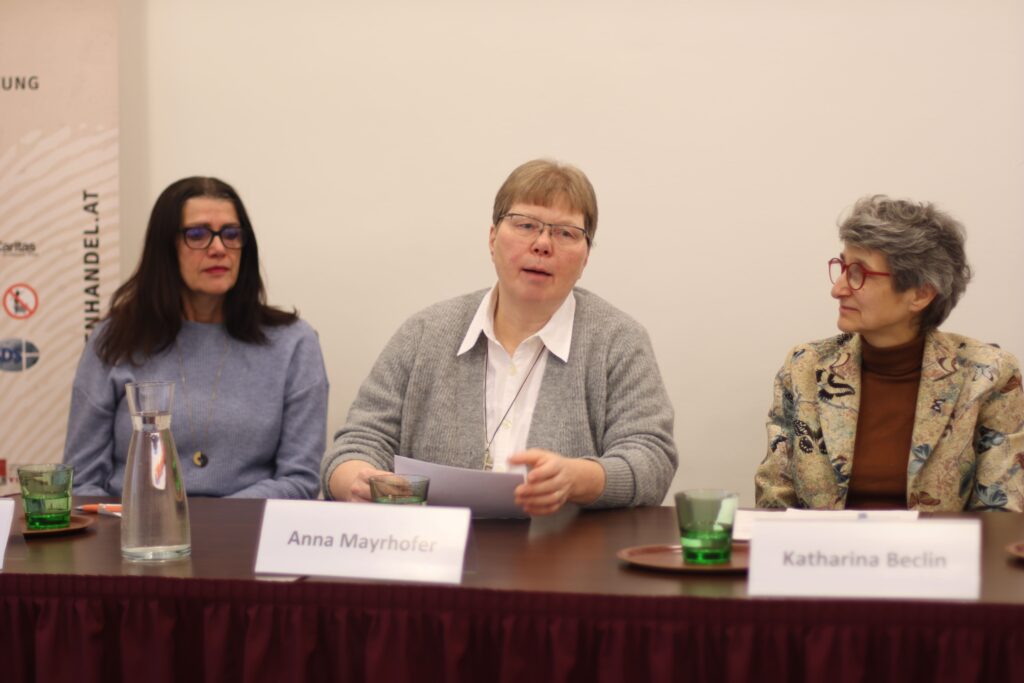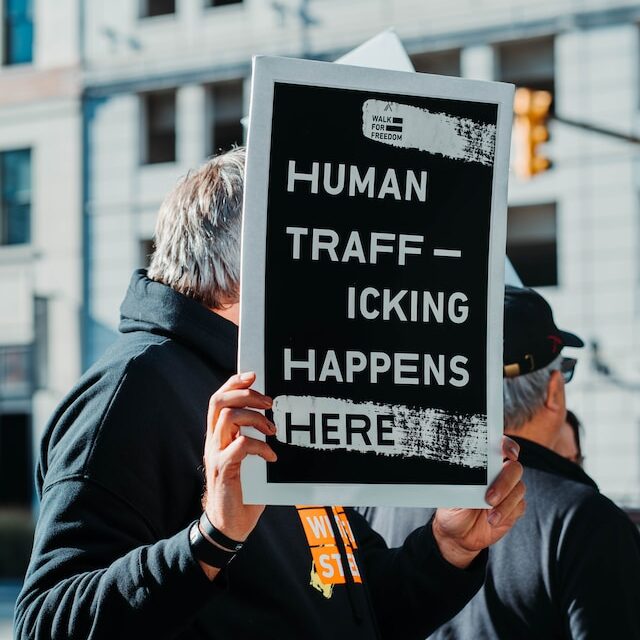NGOs such as Hope for the Future help people in emergency situations and receive no state subsidies. If things continue like this, the services could one day no longer be provided, as was announced at a press conference in early December.
PRESS CONFERENCE ON WORLD HUMAN RIGHTS DAY

On December 6, a press conference was held at the Concordia Press Club in Vienna on World Human Rights Day (December 10), to which the “Platform against Exploitation and Human Trafficking”, an association of 19 NGOs, had been invited. The NGOs are largely based on voluntary work, but it is still a challenge to provide even the most basic help. At the press conference, Andrea Staudenherz from Hope for the Future and Sr. Anna Mayrhofer from SOLWODI, among others, spoke about successes and, above all, difficulties in the context of support services for those affected by exploitation and human trafficking.
Anyone in Austria who is a victim of human trafficking or exploitation is theoretically entitled to certain benefits, protection and assistance. In practice, the path from difficult, exploitative circumstances into society is more complicated. Victims often do not receive a residence permit for various reasons (e.g., fear of giving evidence to the police, lack of language skills), which blocks their access to the labor market and financial support (basic services). Sometimes the processing of applications takes longer than planned. In these cases, those affected are left on their own, and so they come to organizations such as Hope for the Future, Kavod or SOLWODI, which offer support for as long as they can, as it is becoming increasingly difficult to offer help in the current economic situation.
WHO IS TO PAY FOR THIS?
Help and cooperation do not necessarily result in profit. Nevertheless, one thing is clear: Hope for the Future & Co. are currently struggling to survive. If prices rise, donations are the most important source of income, and as most of the work is already done on a voluntary basis anyway, it will be difficult to continue offering help in its current form. This is why the press conference also called for state aid, which Hope for the Future has not received so far. It will be interesting to see how and whether the relevant government agencies, including the Federal Ministry for Europe, Integration and Foreign Affairs, respond to this appeal. In recent years, plans of action have been drawn up and there has been a willingness to do something to improve the plight of victims of human trafficking in Austria. However, the current situation and the outlook are bleak.

IS THE STATE DOING ITSELF HARM?
If the current Austrian government is serious about human rights and upholding equal rights for all, as it often claims in the media, it should start by helping people in need. We are talking about people who are in Austria, some of whom are here involuntarily and yet have the will to integrate, go to work and learn the language. These people have experienced things that are unspeakable, and yet they continue to believe in a better life. They have potential and want to develop themselves, yet obstacles are placed in their way. There is almost no area of life in which the state is not involved. There are no limits to the support on offer for the economy: start-up assistance, climate investments, press subsidies, coronavirus aid, digitization grants, e-car subsidies, and the list goes on and on. However, support for NGOs such as Hope for the Future will not be found among them, even though many people have only managed to get back into life and the regular labor market as a result.
Translated by Emily Schiffer
#HumanTrafficking #HumanRights #HopefortheFuture #NGO #Labor #Politics #AgainstHumanTrafficking #GegenMenschenHandel #EndExploitation #EndTrafficking #HopeForTheFuture #Austria
